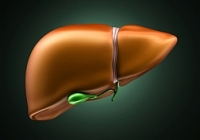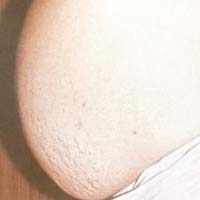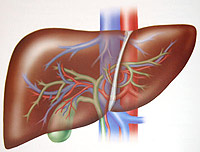The main risk factors for the development of liver cirrhosis, patient care rules with liver cirrhosis. You can read more about this in the article.
Content
Liver cirrhosis - chronic liver disease, accompanied by
the destruction of the normal liver tissue and the exploration of non-functioning
connective tissue, broken structure and liver function.
Among people aged 45-65 years of liver cirrhosis - the third frequency
The cause of death after heart disease and malignant tumors.
The main risk factors for the liver cirrhosis
- chronic hepatitis and other liver diseases;
- abuse of alcohol or its surrogates;
- defective nutrition;
- prolonged use of some drugs;
- Chemical toxins poisoning.
Basic symptoms of liver cirrhosis
- Sometimes at the beginning of the disease there are no symptoms;
- The first symptoms may be weakness, light fatigue, gravity in the field of right hypochondrium, the irregularity of the chair;
- jaundice;
- Itching skin;
- In the development of ascites - an increase in the abdomen, a decrease in the amount of urine allocated;
- In emerging cases, it is possible to bleed from extended veins
esophagus and hemorrhoids, development of liver failure,
accompanied overweight, inadequate reaction to the surrounding,
confusion and loss of consciousness, coma development
Patient care rules with liver cirrhosis
- Control over the observance of the diet - mainly
Milk and vegetable vitaminized food using in
main vegetable fats;
- It is strictly forbidden to use any alcohol;
- prohibited sharp, fried and marinated dishes;
- in weakened patients - bedding in which the general care is ensured and convenient for the patient position in bed;
- restriction of exercise;
- In the development of ascites, it is necessary to limit the cook salt up to 5 g per day and liquid to 1 l per day;
- With the appearance of signs of hepatic encephalopathy - limitation of protein food;
- In the event of bleeding from the extended veins of the esophagus - shown hunger;
- Food fractional, not less than 4-5 times a day;
- control over the diuresis of the patient;
- control over body weight;
- control over a full and timely admission of drugs prescribed by a doctor;
- In case of dryness, massacres and skin itching - skin care;
- Monitoring the mental state of the patient.
Prevention measures
- restriction of alcohol consumption;
- balanced diet;
- adequate treatment of liver diseases, in t.C. sharp and chronic hepatitis.









